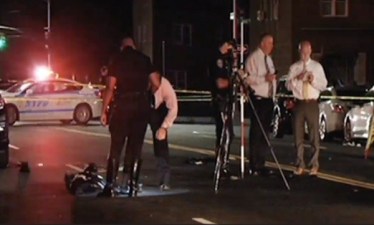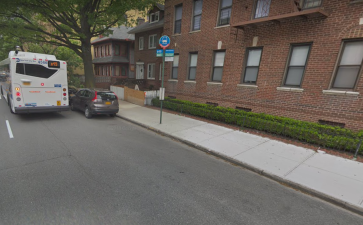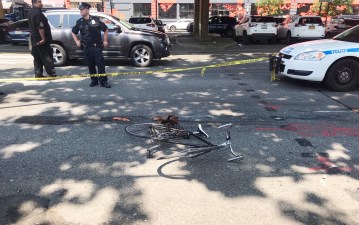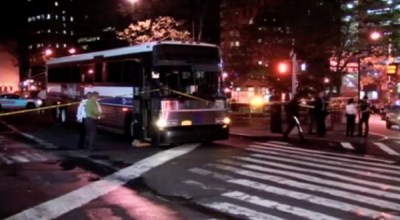License Revoked For Driver Who Killed 10-Year-Old Boy Last Year
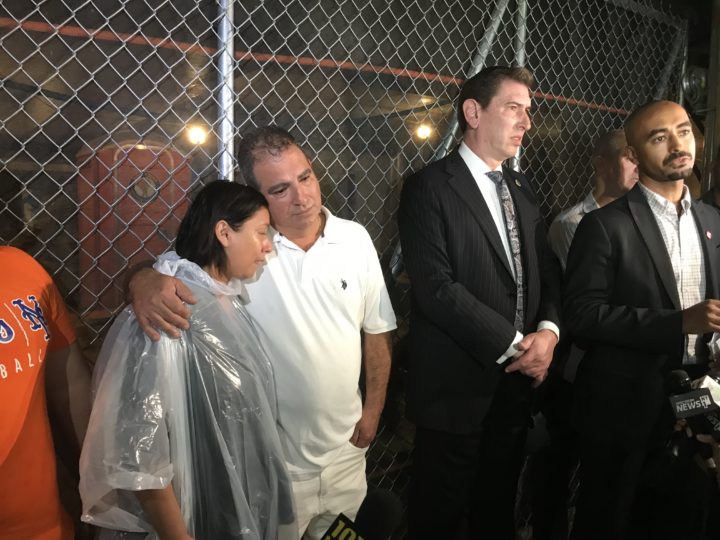
The Department of Motor Vehicles has revoked the license of the driver who killed a 10-year-old boy waiting at a bus stop in Midwood last year, a driver whom Brooklyn District Attorney Eric Gonzalez declined to prosecute.
Last week, DMV Administrative Court Judge Daniel Dillon indefinitely pulled the driving privileges of Alexander Katchaloff, the 59-year-old driver who fatally struck little Enzo Farachio as the boy was waiting for the bus after school on Sept. 10, 2019.
The family is pleased with the state’s decision, especially after Gonzalez let Katchaloff off the hook last month, saying the driver suffered a medical episode and therefore could not be held criminally responsible, according to the victim’s family’s lawyer.
“The decision speaks for itself. We appreciate the fact that his license has been [revoked],” said personal injury attorney Leslie Kelmachter.
The revocation of the license — rather than a temporary suspension — means that Katchaloff will have to reapply for permission to drive, according to Kelmachter, who is planning a civil suit against Katchaloff.
License revocations are rare, as the DMV typically hands down suspensions for a certain period of time after such hearings, according to another personal injury lawyer unrelated to this case.
“A revocation is a rarity — the majority are suspensions. There are very few revocations,” said lawyer Daniel Flanzig.
And DMV typically decides the fate of a driver more than a year after the fatal crash, meaning the driver is still on the road from the day of the crash until — or if — the DMV suspends or revokes his license, Flanzig added.
“There has to be some adjudication because you can’t have automatic revocation. But the problem with fatal DMV hearings is that they take so long to occur — so somebody is still driving for a year-and-a-half, two years until it’s finally adjudicated, that’s an obvious problem,” he said.
In this particular case, it’s unclear how easily Katchaloff will get his driving privileges restore. But the DMV ruling suggests that he should have a high bar to get over, given the details of his case.
“Mr. Katchaloff does not know, medically, what occurred that day, but stated that his health care providers think it ‘may have been A-fib,’” Dillon’s ruling stated. The judge included that Katchaloff himself testified, “It could happen again. I don’t know.”
One thing that is known? Katchaloff has a history of speeding — he had racked up three tickets over five months, including one about a month before the fatal crash. And he appears to disregard safety when it suits him, posting a video on Instagram that shows was filmed while he was driving in the rain only weeks before hitting and killing Enzo.
the vehicle involved in the death of a 10-year-old has gotten FOUR school zone speed camera violations https://t.co/auwr8OxYVl
— zainab iqbal (@planetzainab) September 11, 2019
Katchaloff declined to answer questions about what happened on the day he killed young Enzo, but expressed his condolences to the family.
“I want to express my deepest sorrow to Enzo’s family. I can only imagine what they are going through. I know it can never be enough but I am so very sorry,” he said in a text message to Streetsblog.
Here’s what happened on Sept. 10, 2019 that the family is still “going through”:
Police said that at about 2:45 p.m., Katchaloff was driving his grey Lexus SUV north on Ocean Avenue when he “veered to the right,” hopped the curb and plowed into an Ocean Avenue building, causing scaffolding to come crashing down onto Enzo, who was standing on the sidewalk near Avenue L. (See the crash below.)
At the time, police said Katchaloff had suffered a medical episode, and a year later, Gonzalez based his decision not to charge him because of that assessment. A spokesman for the district attorney’s office said Katchaloff suddenly lost consciousness due to “syncope.” Kelmachter blasted Gonzalez for citing syncope as the reason the driver lost control. Usually syncope is a symptom of a greater medical problem, not the cause.
“Syncope just meant he felt faint — if that’s the excuse, people don’t feel faint without a reason. It’s insufficient,” Kelmachter told Streetsblog last month. “I deal with medical records everyday and syncope in and of itself is not a medical diagnosis; it’s an occurrence, and it’s one that there’s a reason or not, and we don’t know the reason.”
But the state’s decision should bring some solace to the family Katchaloff can no longer drive, and risk hurting anyone else
Gonzalez’s office maintains it was unable to sustain criminal charges against because he was apparently never told by a doctor not to drive — unlike Dorothy Bruns, the 44-year-old who drove through a red light in Park Slope in 2018, killing 20-month-old Joshua Lew and 4-year-old Abigail Blumenstein, and injured their mothers.

